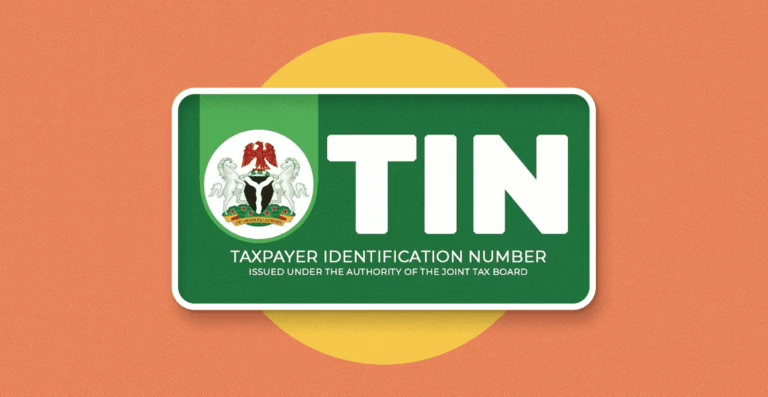Starting January 1, 2026, all individuals holding bank accounts in Nigeria will be required to possess a Tax Identification Number (TIN) to maintain account operations. This mandate is part of the Nigeria Tax Administration Act, 2025, signaling a significant transformation in the country’s tax regulatory framework with wide-reaching effects for bank account holders nationwide.
Fortunately, acquiring a Tax ID is now a hassle-free and cost-free procedure. Many Nigerians may already have a Tax ID generated automatically through their Bank Verification Number (BVN) or National Identification Number (NIN).
How to Obtain Your Tax Identification Number: A Clear Guide
The government has streamlined the process to ensure easy compliance with the new regulation.
Step 1: Confirm if a Tax ID is already assigned to you
- Access the official Joint Tax Board (JTB) TIN Verification Portal at https://tin.jtb.gov.ng.
- Choose the “Search for TIN” feature.
- Input your BVN and Date of Birth to verify if a Tax ID has been pre-assigned.
Step 2: Register for a Tax ID if none exists
- If no Tax ID appears during verification, proceed to register for one.
- Visit the JTB TIN Registration Portal via the provided link.
- Select “Register for TIN” under the individual category.
- Complete the form with your BVN, NIN, and other necessary personal information.
- Submit your application and follow the instructions to receive your Tax ID certificate.
This entire registration is free, and once issued, you can download and print your Tax ID certificate. It is advisable to complete this well ahead of the January 2026 deadline to avoid any disruption in your banking and financial activities.

Overview of the New Tax Legislation
The Nigeria Tax Administration Act, 2025, recently enacted by President Bola Tinubu, forms a cornerstone of the government’s initiative to overhaul the nation’s fiscal system. This legislation extends beyond conventional banking, aiming to foster a more transparent and accountable financial environment.
According to Section 8(2) of the Act, “Any individual or entity involved in banking, insurance, stockbroking, or other financial services within Nigeria must ensure that every taxable person possesses a Tax ID.” This means that a valid Tax Identification Number is now essential for accessing services such as bank accounts, insurance coverage, or investment portfolios.
The law also encompasses non-residents. Section 6(1) mandates that “Non-resident persons providing taxable goods or services to Nigerian entities, or earning income from Nigeria, must register for tax purposes and obtain a Tax ID.”
To promote compliance, Section 7(3) authorizes tax authorities to automatically assign Tax IDs to individuals or organizations that fail to register voluntarily.
For businesses temporarily ceasing operations in Nigeria, the Act permits suspension or deregistration of their Tax ID. It states, “A taxable person who temporarily halts business activities in Nigeria must notify the relevant tax authority within 30 days to suspend their tax registration.”

Insights from Tax Authorities and Clarifications
Taiwo Oyedele, Chairman of the Presidential Committee on Fiscal Policy and Tax Reforms, has provided important explanations to ease public apprehension regarding the new tax law.
In a recent post on his official X account (formerly Twitter), Oyedele emphasized that the Nigeria Tax Administration Act (NTAA) enforces existing tax regulations rather than introducing new policies. He clarified that the NIN for individuals and the Corporate Affairs Commission (CAC) registration number for companies will serve as the Tax ID, simplifying the process.
He further assured that the law is designed to ensure equitable tax contributions from all taxable income earners while safeguarding low-income earners who fall below the taxable threshold.
Failure to obtain a Tax ID will restrict access to banking, insurance, and investment services, with penalties applicable for non-compliance.























0 Comments